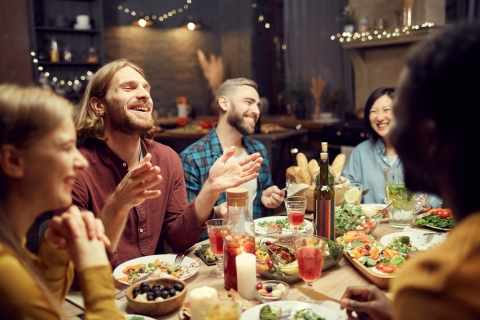

Follow these 7 basic food rules to eat and feel better
What you eat is every bit as important to your fitness as what you do in the gym. But every week, different diets are promoted and scare stories pop up in the news. So we have stripped it back for you to the basics which scientists and nutritionists agree on.
Write them down, stick them to the fridge and enjoy these simple food rules.

1. Green is good
There is no such thing as too much veg, especially those grown above ground. We start here because this could change how you think about the rest of your diet. Regardless of your meal, your plate should be half full of yummy veg. Now we have no issue with starchy carbs, however, the fundamental problem they cause in the diet is they cause sudden and prolonged rises in blood sugar, which provokes a biochemical imbalance which could predispose you to weight gain, type 2 diabetes and other diseases. So when looking to eat carbohydrates look for those with slower sugar release. It is also important to remember fruits and vegetables are radically different nutritionally. If you get your 5 a day from fruit alone your blood sugar levels will go crazy during the day due to the high fructose content.
TIP - Make vegetables the foundations of your diet. Vary them as much as you can. Aim for 2 pieces of fruit a day and the rest of your 5 from vegetables.

2. Eat protein with everything
Protein is an important compound of the diet and when you have an adequate amount of it in your diet you tend to feel less hungry, eat less and you have the nice side effect of weight loss. To keep it simple as there are a variety of options for how much protein you should be getting in your diet. Stick to a two-to-one ratio (2:1) of vegetables to protein in every meal.
TIP - Make it part of every meal as it can be easy to not get enough protein.
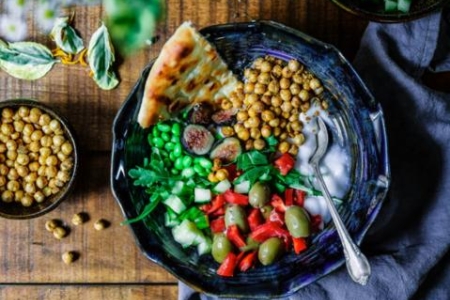
3. Don’t fear fat
We know that eating some fat is essential to a healthy diet, however, it is too easy to make a mental connection between eating fat and getting fat. Fat is more calorific per gram than protein and carbohydrates, however, if you are worried about weight loss, one of the key things is to eat foods that are genuinely satisfying because you will eat less of them, which is what usually happens with fat. Remember we also want to avoid that insulin spike which we often get when eating certain types of carbs instead. When looking at fats, look for the naturally occurring ones - like avocado and nuts.
TIP - Avoid partially hydrogenated fats, especially trans fats.
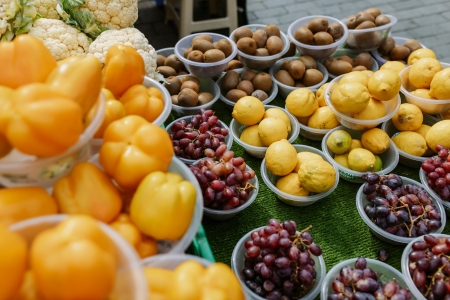
4. Start your day well
Breakfast is the most important meal of the day, we are no strangers to hearing this. But did you know if you skip this meal it can slow your metabolism? The real question is, are we still getting it wrong when we do have breakfast? Eating a high-carb breakfast will likely give you low blood sugar by mid-morning, which may result in you snacking on more high-carb foods, and then the circle of snacking throughout the day is born. Think of starting the day with oats, berries and nuts or scrambled eggs and salmon might make an exciting change to the breakfast routine.
TIP - Treat breakfast like any other meal, a blend of protein, fats, fruit and veg.
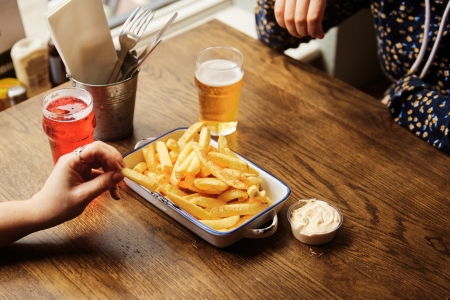
5. All calories are not equal
Unfortunately, calories are not an indicator of what effect that food is going to have on your metabolism. For example - would you say 2 poached eggs are the ‘same’ as a can of coke just because they contain a similar number of calories? Of course not. Calorie counting can allow us to slip into the bad habit of thinking we can make bad dietary decisions ‘if it fits our calorie count’. Ever heard anyone say they can eat what they want because they will burn it off at the gym? The hard truth is the more active you are the better your nutrition needs to be. As this will allow your body to perform better.
TIP - Think quality, not quantity. Eating nutritious food is far better than rigidly sticking to a 2000-cal diet - if those calories are coming from ready meals, pizza and beer.
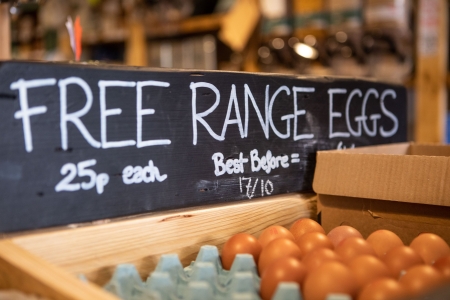
6. Free range is key
A lot will know this one already but just in case you are tempted by the bulk buy cage-raised eggs, the reason why free range and organic is better for you is those animals have a more varied diet and more exercise than the caged equivalent. This allows those animals to develop more muscle and therefore tend to contain more zinc, vitamins B, A and K, amino acids, iron, selenium and phosphorus.
TIP - Free-range chicken, grass-fed beef and wild-caught salmon. If you don’t know where it’s from … chances are the answer is not going to be good.

7. Eat real food
This rule if you follow it, you will by default be following all the other rules. The rule - ‘if it grew out of the ground or once had a face, you can eat it’ Alternatively, think like our hunter-gatherer ancestors or the pre-industrialised world. Would they have eaten it back then? When shopping, the outer aisles of the supermarket are usually where the fresh produce is usually kept, for the simple fact of ease of transportation into the shop. Try to minimise the preservatives in the diet, easy way to do this, if you cannot spell or pronounce an ingredient on the food packaging it is unlikely to be something you have in your kitchen. Foods that eventually rot are good foods as you know they are fresh. Find the foods that you enjoy eating. Eating is an experience and when you enjoy it the easier it is to stick with the small changes to the diet.
TIP - eat food, not products pretending to be food.

